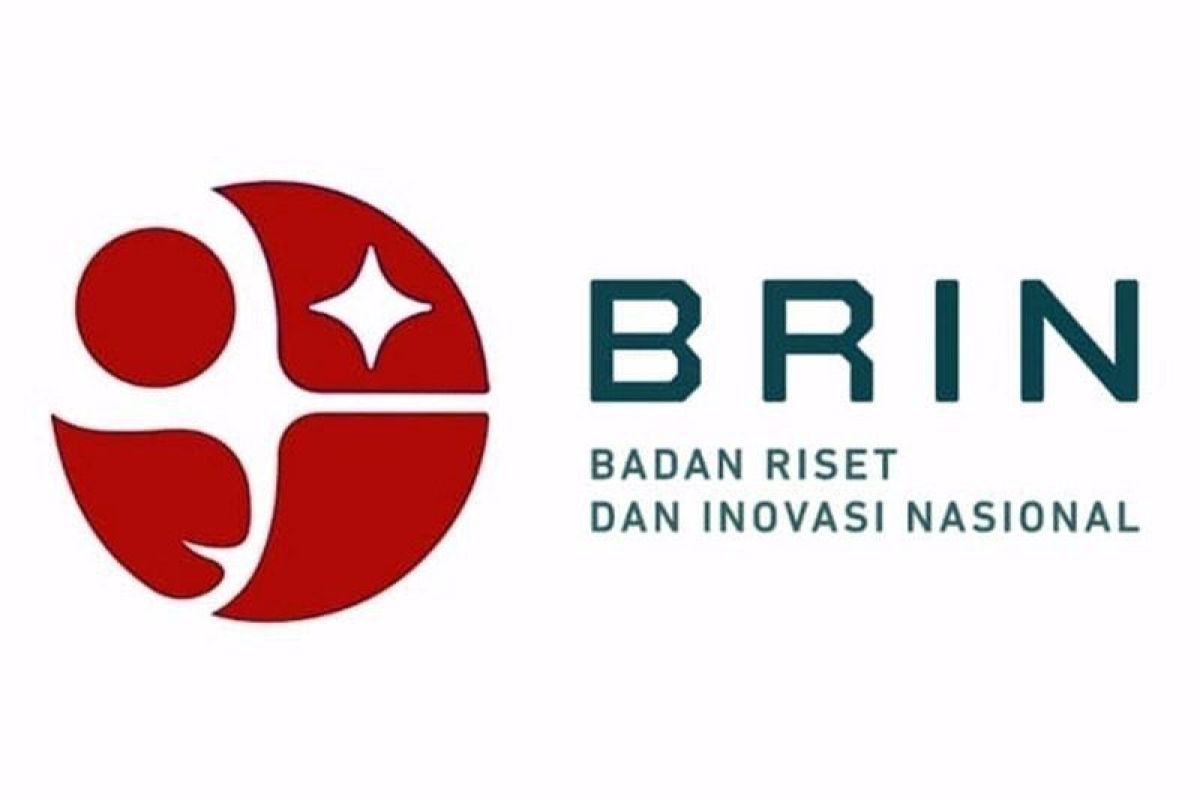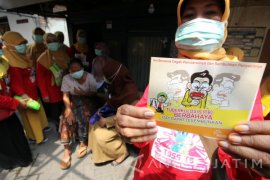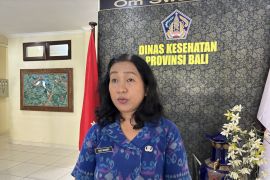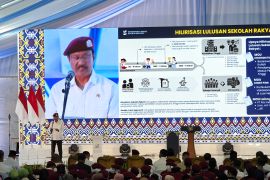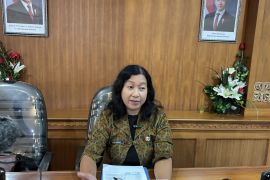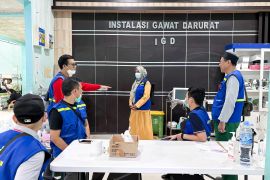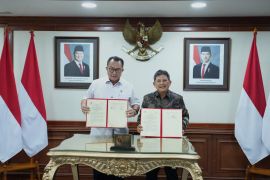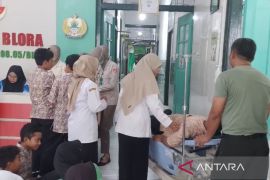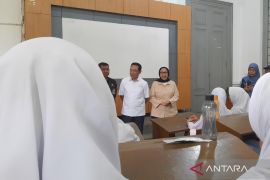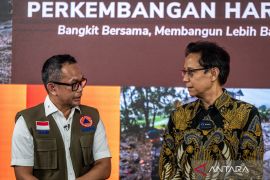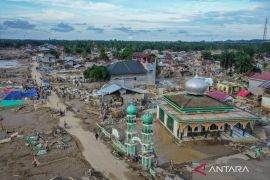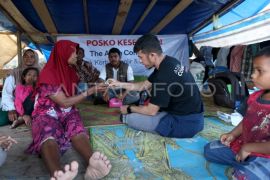Moreover, medicines, vaccines, and health devices have to adhere to applicable standards, while researchers do not understand aspects related to the industry, regulations, and trials to meet those standards and regulations.
This condition has become an issue that leads to the lack of research results in the absence of a bridge connecting research to the industry that hinders the downstreaming and commercialization of research products.
This is despite the fact that Indonesia has vast potential when it comes to research in medicines, vaccines, and health devices.
This is proven by the emergence of various health innovation products to mitigate impacts of the COVID-19 pandemic in the country.
Moreover, the capacity of Indonesia's pharmaceutical industry continues to grow, as was apparent in the case of State-Owned Pharmaceutical Company Bio Farma that became one of the biggest vaccine producers in the world.
Indonesia has over 240 pharmaceutical companies, including state-owned enterprises and private enterprises.
Indonesia also has 1,489 central pharmaceutical wholesalers (PBF) and 1,074 PBF branches.
Indonesia has more than 40 thousand hospitals, pharmacies, clinics, and drug stores that utilize and distribute medicines and health devices.
These are sufficient to cover Indonesia's population of 270 million, including 240.3 million members of the state-run Healthcare and Social Security Agency (BPJS Kesehatan).
However, the country continues to face issues in the form of dependence on imported medicinal raw materials and shortcomings in the innovation product department.
In addition, some 90 percent of the medicinal raw material (BBO) utilized in Indonesia are still imported.
BRIN's Role
Indonesia's medicinal raw material spending is the highest among countries in Southeast Asia, as there is a demand for large quantity of medicines for Indonesia's equally large population.
Handling this necessitates domestically meeting this demand to reduce import dependency. To this end, the National Research and Innovation Agency (BRIN) and Health Ministry encourage expediting the independence of Indonesia's pharmaceutical and health device industry.
BRIN plays a role in bringing research results to the industry and bearing the risk of failure. The agency also facilitates researchers, so that medicine, vaccine, and health device candidates can meet the applicable standards.
All of this is done to push downstreaming and commercialization of research and innovation results to support independence of the Indonesian pharmaceutical and health device industry.
The agency functions as a bridge, so that research results can reach the industry by using all resources it has after integrating all research resources owned by the government.
"We can conduct concrete programs and actions to expedite independence of the Indonesian pharmaceutical and health device industry," BRIN's Head, Laksana Tri Handoko, remarked.
To this end, BRIN provides a facilitation scheme for health innovation product testing that encompasses pre-clinical and clinical trials for medicines, vaccines, and health devices.
The agency also provides research infrastructure, such as the Bio Safety Level 3 (BSL-3) animal BSL-3 Laboratory.
Research infrastructure and facilitation scheme existing in BRIN can be accessed by everyone, including researchers in BRIN and in the campus, community, and also industry research and development teams.
Currently, BRIN is preparing the Good Medicine Producing Method (CPOB) facility for vaccines and medicines in Cibinong, West Java, to support limited production of vaccines and medicines needed for pre-clinical and clinical trials.
BRIN is also developing animal BSL-3 for primates with sizable quantity that can be utilized as a safety and efficacy proving platform for various medicines and vaccines in development.
The development of animal BSL-3 is expected to be completed within the next several months.
The CPOB facility and animal BSL-3 will be immensely beneficial to support the development of various medicines and vaccines for COVID-19 and vaccine for endemic diseases in Indonesia.
The facilitation scheme for health innovation product testing is managed by BRIN's Research and Innovation Facilitation Deputy.
The deputy will select and establish the proposal related to medicine, vaccine, and health device candidates that will be financially supported for testing.
Subsequently, the testing process will be conducted by BRIN's Research and Innovation Utilization Deputy team by forming a lineup that conducts various trials and adhering to applicable standards and regulations.
However, there must be an industry that will become a partner candidate for product utilization and trial proposer to the regulator.
The entire facilitation scheme and research infrastructure is expected to be utilized optimally to expedite and facilitate researchers and the industry in developing various Indonesian-made medicines, vaccines, and health devices in future.
Health Ministry's role
Several strategies have been undertaken by the Health Ministry to support resiliency of pharmacy and health devices in Indonesia that encompasses three aspects: research and development, production, and market guarantee.
For research and development, the ministry has formulated a five-year medium term roadmap for all BBO molecules that became priorities based on value and other factors, such as the disease pattern trend, demographics, and urgency.
The ministry also provides facilitation for technology transfer, vaccine and health device clinical trial, and BBO change source.
This includes financing the clinical trial for Merah Putih vaccine for COVID-19 conducted by Airlangga University and its partners.
The ministry is also bolstering the development of hospitals under it to have the capacity in conducting clinical trials for medicines and vaccines.
With this, new medicine, vaccine, and health device development projects can utilize clinical trial facilities developed by the ministry in future.
According to the Ministry's Pharmacy and Health Device Director General Lucia Rizka Andalucia, it is important to gain mastery over new vaccine technologies on various platforms.
This aims to push domestic production to meet domestic demand, such as vaccine to prevent tuberculosis (TBC).
In addition, the ministry conducts coordination between sectors for the health device network, supports the research and development ecosystem, and assists in the development of innovative health devices and health devices for the national health program.
In terms of production, the ministry has undertaken various licensing simplification and provides several types of testing facilitation as well as incentive intervention for the pharmaceutical and health device industry.
In terms of market guarantee for the domestic pharmaceutical and health device industry, the ministry provides a variety of incentive schemes for the industry.
This includes conducting import product substitution, undertaking domestic component level implementation, and encouraging government spending for health devices and medicines to be optimized for domestic product utilization.
If domestic products can meet the national demand, then the import of products can be halted. This aligns with the ministry's efforts to encourage the utilization of domestic products, primarily in hospitals, regions, and the private sector.
In addition, the ministry pushes the development of biological and plasma derivative products and domestic production for health devices.
The ministry also supports the development of standardized herbal medicine (OHT) and jamu, Indonesian traditional medicine, to become phytopharmaca based on the therapeutic area and availability of natural material.
These phytopharmaca products are expected to utilize Indonesian material and not imported materials.
These efforts made by the government are expected to create a conducive ecosystem to encourage the independence of the pharmaceutical and health device industry and the sovereignty of health management in Indonesia.
Related news: Pandemic forced reformation of national health sector: minister
Related news: Ministry allocates Rp394.5 billion for building pharmacy sufficiency
Editor: Rahmad Nasution
Copyright © ANTARA 2022
